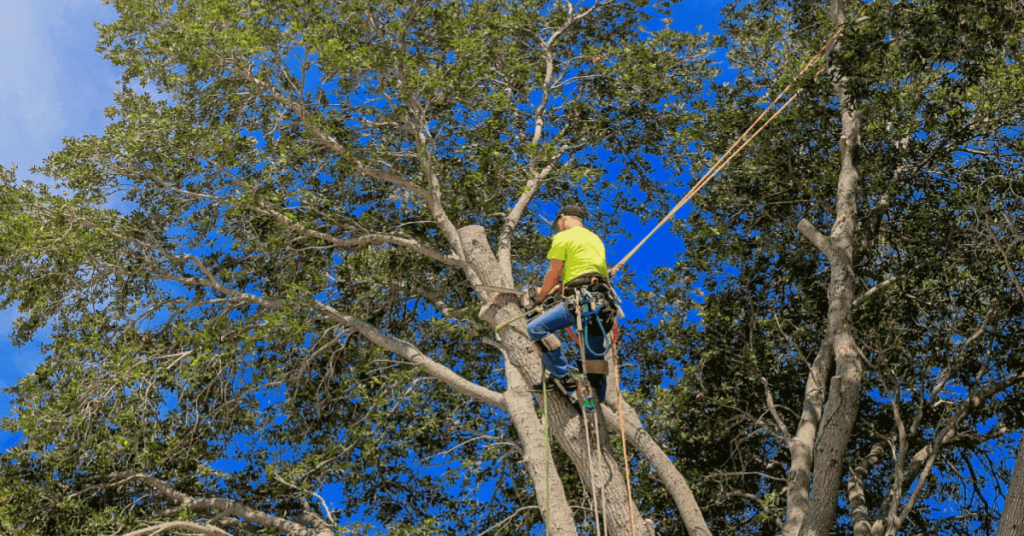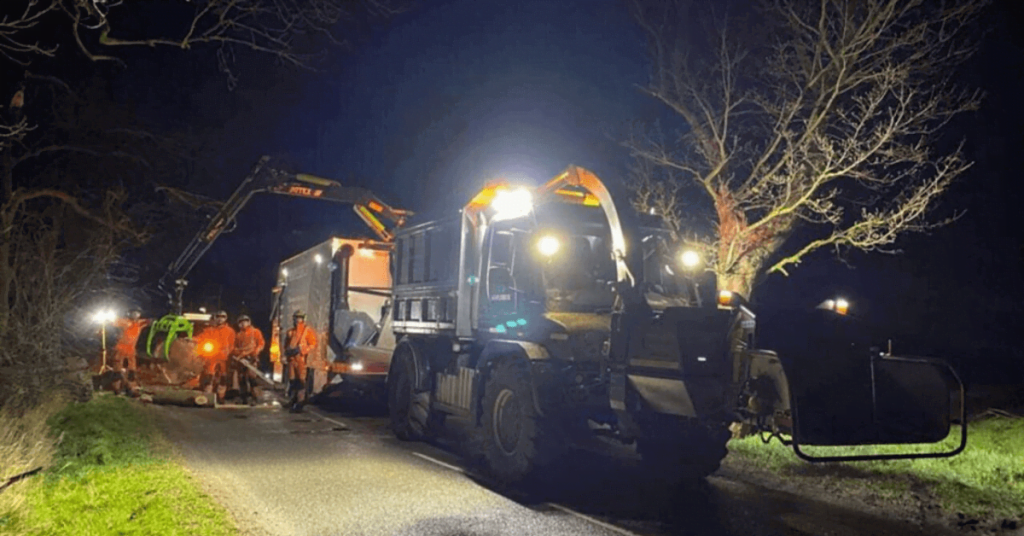If a tree on your neighbor’s property has caused structural damage to your home, you may be wondering whether or not it is possible to take legal action against them. This can be a complex matter that requires attention to detail and an understanding of the applicable laws in your state.
In this blog post, we will provide an overview of how to determine if you have a case against your neighbor for tree damage, as well as some tips on gathering evidence and other important information to consider before deciding whether or not to pursue legal action. Read on for more details!
What to do if a tree falls on your property?
If a tree falls on your property and causes damage, it is important to first assess the extent of the damage. This includes taking photos or videos of any visible structural damage to document for your records. You should also be sure to contact your insurance provider as soon as possible to determine if the damage is covered under your policy.
Next, you should decide if you want to pursue a legal claim against your neighbor. To do this, you will need to determine who is legally responsible for the tree and the damage it caused. In most cases, the homeowner who owns the property on which the tree resided is liable for any damages, but this may vary depending on where you live and how long the tree has been on the property.
If you believe your neighbor is legally responsible for the damage, it may be wise to consult an attorney who specializes in personal injury or property law. They will have a better understanding of the laws in your area and can advise you on the next steps such as filing a lawsuit if necessary.
In addition to consulting an attorney, you should gather as much evidence as possible to support your claim. This includes any photos or videos of the damage, witness testimony from neighbors and other relevant information that can be used in a court of law.
Finally, keep in mind that legal action against your neighbor may have unexpected consequences. It is important to consider the potential costs, time commitment and other risks associated with pursuing a lawsuit before making a decision.
Difference between an act of God and negligence
It is important to understand the difference between an act of God and negligence when it comes to tree accidents. An act of God is a natural event that cannot be controlled, such as a storm or earthquake. On the other hand, negligence is when someone fails to take reasonable care and resulting damage occurs because of this failure.
For example, if a negligent neighbor fails to trim their trees and a branch falls onto your property, resulting in damage, they may be held liable for that damage. On the other hand, if severe winds cause a tree to fall on your property and no one is at fault, this would constitute an act of God and the damages are typically not recoverable.
How to determine if a neighbor is liable for damages?
The first step in determining if your neighbor is liable for damages is to review applicable laws in your state. These may vary, so it is important to consult an attorney to ensure you are following the law.
In most cases, a property owner or tenant that has control of a tree or land where a tree resides will be held liable for damages resulting from that tree, if reasonable care was not taken. However, this may not be the case if an act of God caused the damage or if a third party is responsible for maintaining the tree.
It is also important to consider any other issues that could be relevant in determining liability, such as prior written notices about hazardous trees, previous events involving the tree and any relevant contracts.
Ultimately, consulting an attorney is the best way to determine if a neighbor is liable for damages resulting from a fallen tree on your property. They can provide legal advice and help you understand the laws in your area.
What to do if you’re injured by a falling tree?
If you are injured by a falling tree, the first step is to seek medical attention. Any injuries must be treated as soon as possible to minimize long-term damage and complications.
Once your health has been taken care of, you should look into filing an insurance claim and/or a legal claim against the responsible party. An insurance claim can help cover medical costs and other expenses related to your accident, while a legal claim can help you seek compensation for pain and suffering or lost wages due to the injury.
To pursue a legal claim, you will need to prove that the responsible party was negligent in maintaining the tree or property and that this negligence led to your injury. This may require collecting evidence such as photos of the accident site, witness statements, medical records and other relevant information.
It is important to keep in mind that legal action can be a time-consuming and expensive process, so it is wise to consult an attorney before taking any action. A qualified attorney can help you determine if you have a case and what steps need to be taken to seek compensation for your injuries.
How much money can you expect to receive in a settlement or judgment?
The amount of money you can expect to receive in a settlement or judgment will depend on the particular circumstances of your case. Generally speaking, the amount of compensation awarded depends on the degree of negligence and damages caused by the accident.
In addition to medical expenses, lost wages and other out-of-pocket costs related to your injury, you may also be able to seek compensation for pain and suffering. However, the amount of compensation awarded will vary depending on the severity of your injuries and any other relevant factors.
Tips for preventing tree damage
Following are tips for preventing tree damage:
- Regularly inspect your trees for signs of disease or decay, such as discolored leaves, fungus and weak branches.
- Prune your trees regularly to keep them healthy and reduce the chances of a branch breaking off during bad weather.
- Keep an eye out for any dead or decaying branches and get them removed immediately.
- Make sure the area around your trees is clear of debris, so that wind can easily pass through without causing damage.
- If necessary, hire a certified tree surgeon to provide professional advice on proper tree care.
- Ensure any construction or landscaping projects in your yard are done properly to avoid damaging nearby trees.
- Avoid planting trees too close together, as this can lead to weakened roots and an increased risk of damage during storms.
- Consider having lightning rods installed on tall trees during stormy weather, as this can help protect them from lightning strikes.
By taking these measures, you can reduce the chances of having to file a legal claim against your neighbor for damages caused by a fallen tree.
Wrap Up
To conclude, damage to your property caused by a neighbor’s tree may be considered trespassing and can subject you to a lawsuit. This can vary depending on the jurisdiction and specific details surrounding the incident. It is best to first contact your neighbor and try to reach an amicable solution regarding any repairs that need to be made.
If this proves unsuccessful, it may be beneficial to consult with a lawyer and explore your legal options. Ultimately, whether or not suing your neighbor for tree damage is feasible will depend on the facts and circumstances involved in the situation. Hopefully, this post provided a general overview of what actions you should take if you find yourself in such an unfortunate predicament.



